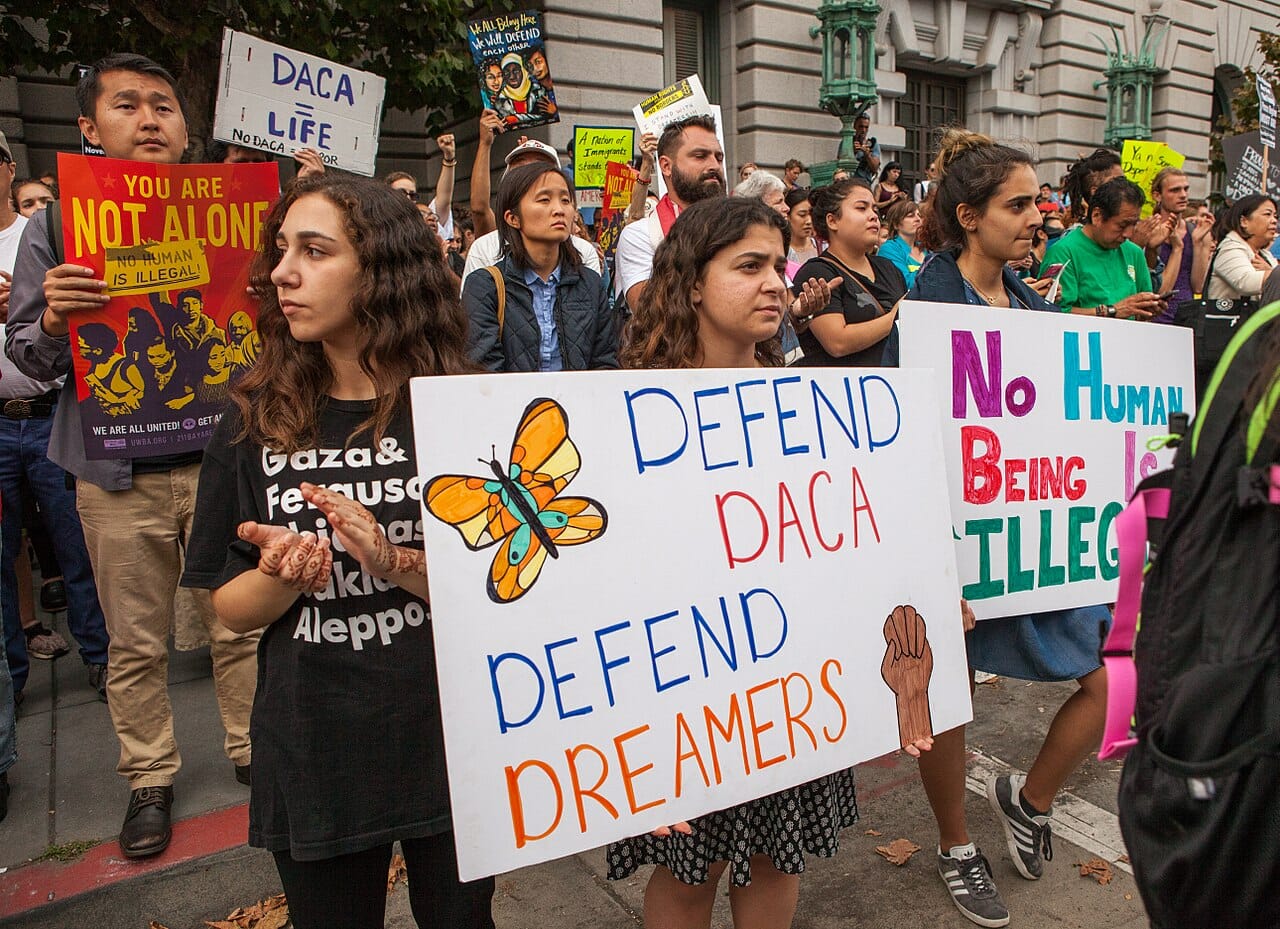Protests ensue following the Trump Administration’s decision to rescind DACA. Here, protestors in San Fransisco take the streets on September 5, 2017. (Wikimedia Commons)
Since the start of his controversial term over eight months ago, President Trump has announced one polarizing plan after another, including one that shatters the dreams of millions. In September 2017, the White House declared the official discontinuation of the Deferred Action for Childhood Arrivals (DACA).
The “dreamers,” a term linked to DACA recipients, represent nearly one million Americans. Young people born after June 15, 1981, and who came to the United States before the age of 16, do not possess lawful immigration status, relying on this federally funded program (created under the Obama administration) to stay in the country.
Immediate pushback ensued as prospective Dreamers—in addition to the 800,000 individuals already under DACA’s protection—were left uncertain of their future in America.
With the program set to end on March 5, current DACA recipients were given the chance to renew their status for two years with the looming application deadline of October 5, less than a month after the President announced the end to the program.
In light of the recent hurricanes that swept the nation, many individuals, including the Congressional Hispanic Caucus have urged the White House to extend the application deadline.
While the Department of Homeland Security did announce it would make special case-by-case decisions for those in Puerto Rico and the Virgin Islands, nothing has been done for those in Texas, Louisiana, and Florida, primary disaster zones and home to almost half of the DACA recipients in our nation.
With less than a month to gather documents and a $500 application fee, those affected scrambled to file their applications in time. And for the Dreamers in Texas, Louisiana, and Florida, finding resources was nearly impossible.
The end result: roughly a quarter of those eligible had not yet filed to renew their status on deadline day.
In Texas, 28% of those eligible had yet to submit renewals, and in Florida, the number was an astounding 35%.
As of now, no concrete plan has been approved in place of DACA. While most of those who currently have DACA are safe, the outlook is grim for young people seeking the act’s protection.
Until action is taken, the future of the Dreamers in this nation lies in jeopardy.








